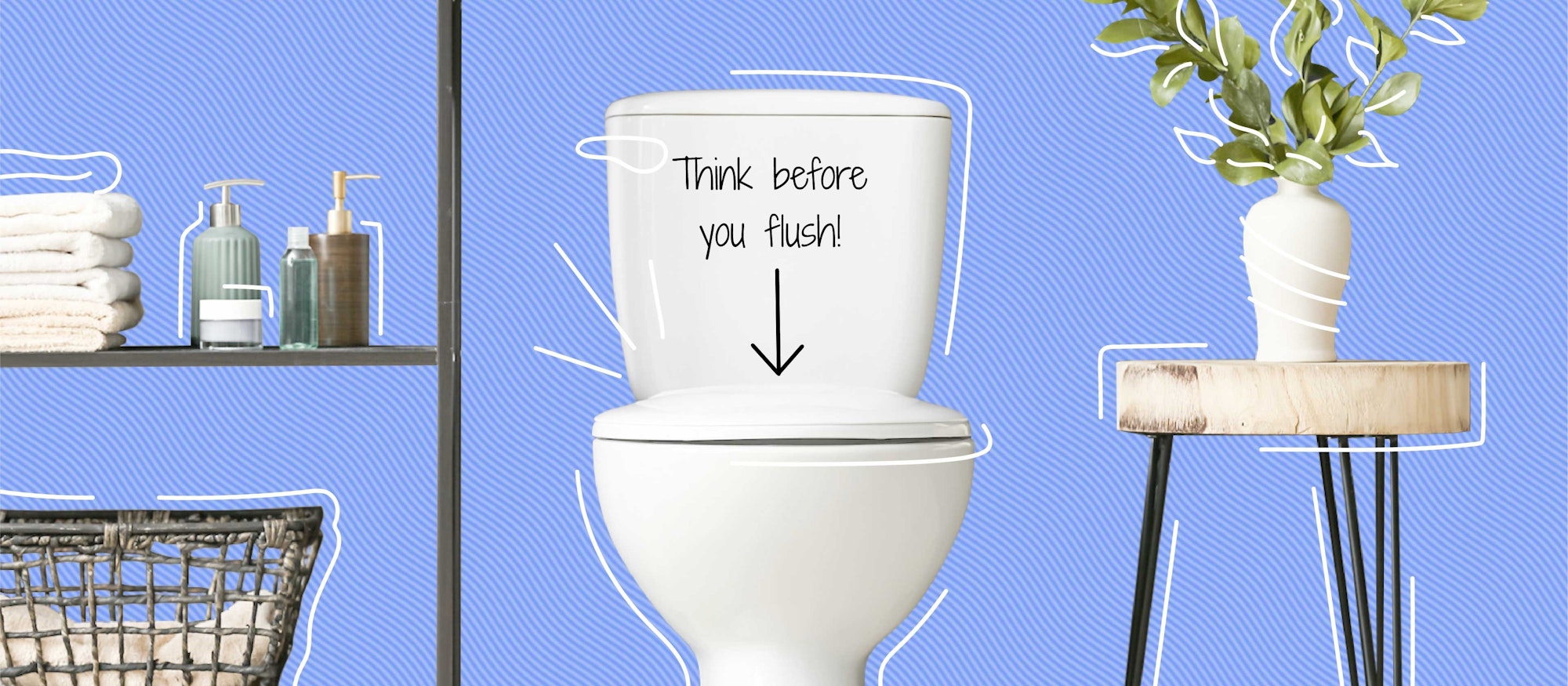What Not to Flush
When customers flush items not meant for the wastewater collection system, it creates blockages which require expensive equipment and staff time to address. Blockages in the wastewater system can also contribute to Sanitary Sewer Overflows (SSO) which result in fines from regulatory agencies. Please do your part to keep our system blockage-free and do not treat your toilet like a trash can.

Are you flushing any of the items listed in the chart below? Read on to find out and change your habits today!
| OK TO FLUSH | DO NOT FLUSH |
|---|---|
| Toilet Paper | Tampons, applicators, pads, or panty liners |
| Human Waste | Hair or Floss |
| Facial tissues, Towels, or Wipes (Even if Labeled "Flushable") | |
| Condoms & Wrappers | |
| Bandages, Needles or Medicine | |
| Cotton swabs, pads, or Q-Tips | |
| Cigarettes | |
| Cat litter or pet waste | |
| FOG (See below) |
Fats, Oils and Grease (FOG)
Now that our collection system maintenance is fully operational, we would like to remind our community to keep the FOG out! By FOG, we mean Fats, Oils, and Grease. These are some of the most common causes of sewer system blockage across the nation and it’s true for our community as well. FOGs can come from our food service establishments, but “harmless” amounts of oil washed down the sink from our residential customers can amount to an accumulation of problems to our aging sewer collection system. Even though our Code[1] prohibits FOG discharge in our sewer system in excess of 100 mg/L (about 1/16 of a teaspoon per liter of water), we believe these simple reminders will help tremendously.
To help prevent sewer blockages, please properly dispose of fats, oils, and grease by following these simple practices:
- Do not pour cooking oil, greasy food, dairy products, or salad dressing down the drain.
- Use strainers in the sink drains to catch food scraps and other solids.
- Do not use hot water and soap to try to wash grease down the drain. It will eventually cool and harden in the sewer lines.
- Pour cooled grease into a disposable container, cover with a tight-fitting lid and place in your freezer. Once contents are frozen, toss in the garbage.
- Mix cooking oils with absorbent material such as coffee grounds or cat litter. Place in tight lidded container and dispose in garbage.
- Wipe or scrape food particles from pots, pans and dishes into the trash can prior to placing them in the dishwasher or sink. (This also saves water by skipping the rinse!)
- Wipe excess fats and grease from pans with a dry paper towel and toss it in the garbage.
These tips will prevent grease blockage that could lead to sewage spills which could harm property and the environment.
For those in the food service establishments, please follow these same guidelines and continue to maintain your grease traps. Thank you ahead of time for your cooperation.
[1] CCSD Municipal Code 5.04.170.B

